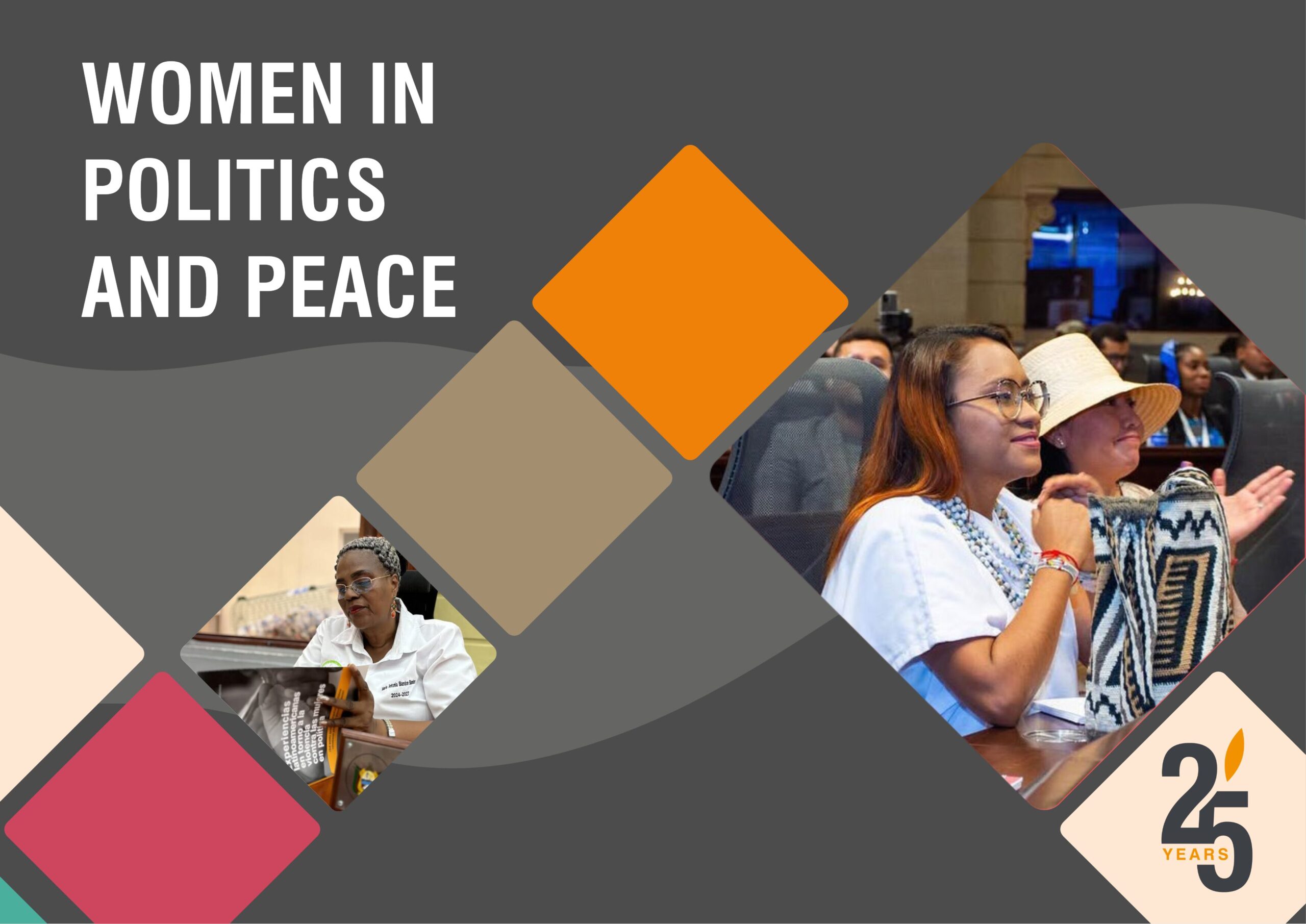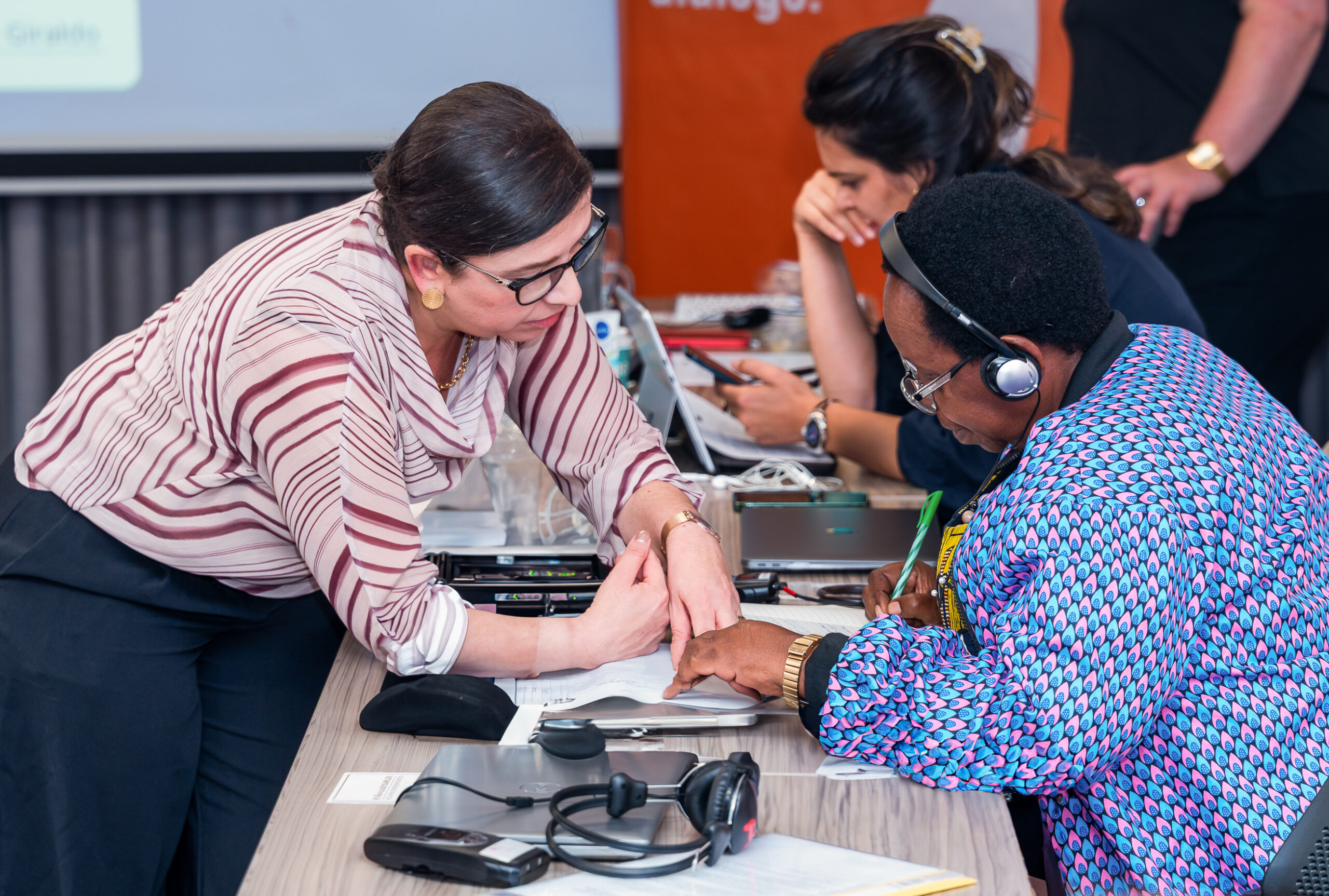Deliberative Democracy: Amplifying the voices of young people in Colombia
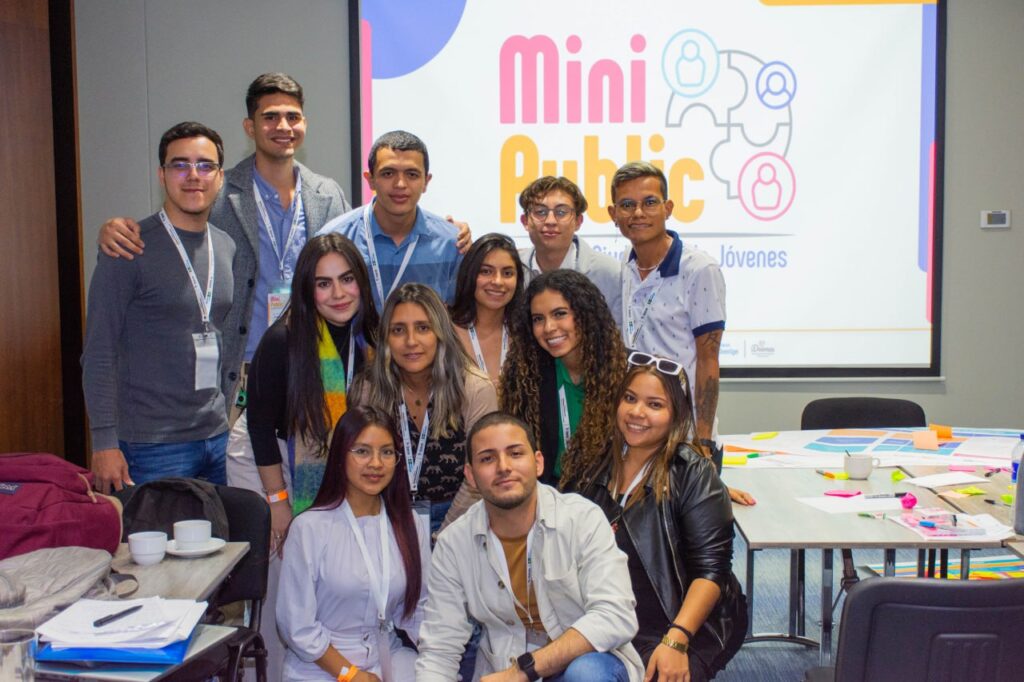
NIMD has held the first ever nation-wide deliberative democracy project in Colombia, bringing together nearly 500 young people from across the country to exchange their opinions on issues of national interest.
By engaging in training and dialogue, the participants – who represented different regions, genders, sexual orientations and ethnic backgrounds – identified 27 proposals for change to the Colombian political-electoral system. These proposals formed the basis of a joint declaration to increase youth participation in the country.
With 500 diverse youth voices behind it, the declaration has the power to provide real insight for lawmakers into the needs, demands and challenges of Colombia’s young people.
As a young person, I think it is very important that our voices are listened to in our country’s political and decision-making structures. Only through dialogue and active participation can we achieve real changes, towards a more just and equitable world.
Jose Ángel Majul – Córdoba region, participant in the Colombia Mini Publics.
WHY DELIBERATIVE DEMOCRACY?
Deliberative democracy is an innovative process designed to amplify the voices of a country’s people, through dialogue and learning. It aims to complement representative and participatory democracy by enriching these processes with new avenues for different contributions and perspectives.
In Colombia, as in many countries, there is an urgent need to amplify the voices of young people. While the country has made recent progress regarding the political representation and participation of young people, there is still some way to go before the youth feel truly heard.
According to a 2021 survey, less than 20% of young people believe that politicians take their ideas into account. What’s more, roughly 90% of young people have a low level of confidence in their political institutions. Deliberative democracy offers a new way for young people to speak up, so that their voices are included in public decision-making.
That’s why NIMD organized this deliberative democracy project, known as Mini Public, as part of the Quorum: Mujeres y jóvenes innovando la democracia (Quorum: Women and Young people innovating democracy) Project, funded by the Swedish International Development Cooperation Agency (Sida).
BUT WHAT IS A MINI PUBLIC?
The Mini Publics project involved several steps. First, the participants were selected through a draw. This process that also ensured gender balance and representation from different regions, ethnic groups, sexual orientations and political affiliations.
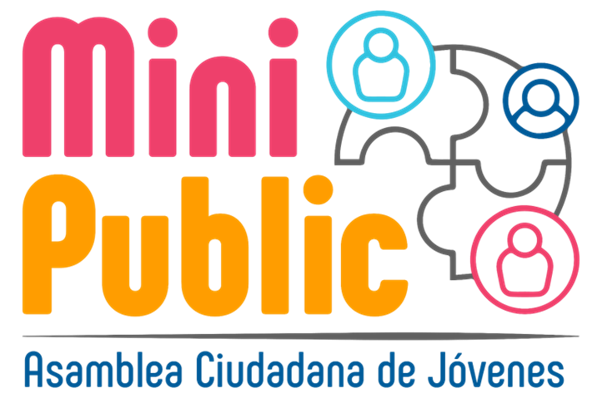
New skills and knowledge
Next, was the learning phase. The participants gathered in virtual classrooms led by thematic experts. They explored ways to enhance youth political participation in Colombia, covering topics such as gender, informal participation, peacebuilding and political reform. This phase aimed to prepare the participants for the upcoming dialogue by introducing them to deliberative democracy and providing them with new knowledge and ideas to complement their experiences.
I entered as a young dreamer with a few tools, and emerged as a young person with concrete proposals and greater capacities to lobby and build a more just and equitable country for everyone.
Ruben Obando – Manizales region, participant in the Colombia Mini Publics.
Constructive dialogue
NIMD then held a large-scale nation-wide dialogue, where the participants exchanged experiences, identified challenges, and developed joint solutions.
To address diverse challenges across Colombia, a whole series of inter-connected dialogues was held, across Colombia’s different regions. This culminated in a national dialogue, bringing together over 100 outstanding contributors from previous phases.
It was a moment that restored my motivation and hope. It helped me believe again in democratic and participatory processes […]. And, it was an opportunity to deliberate and share ideas that promote renewal for our country. Dialogue will always be a tool that drives innovation, inclusion, and renewal to construct the social fabric.
James Rodríguez- Cauca region, participant in the Colombia Mini Publics.
The participants engaged in a constructive conversation based on mutual respect, active listening and consensus building. By focusing on what they had in common, they formulated 27 concrete proposals for change. They combined these into a joint declaration urging policymakers to ensure young people can take up their rightful role in politics.
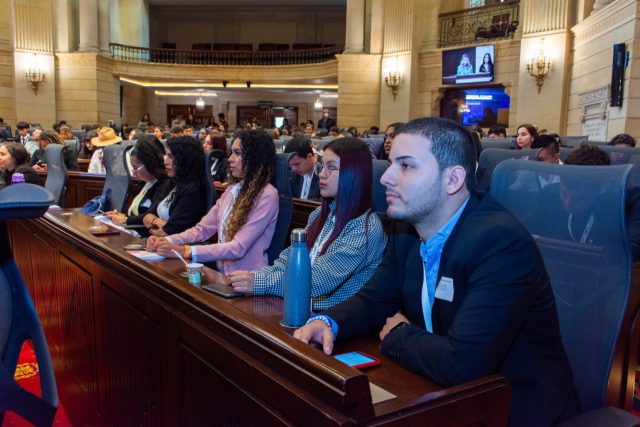
A CALL FOR INCLUSIVENESS
In the declaration, the participants jointly demanded greater political representation and participation opportunities for young people, essential for strengthening democracy.
As such, they called for new strategies to prevent the structural exclusion of young people, and other underrepresented groups, to increase inclusiveness in Colombia. For example, they proposed strategies to tackle stereotypes and gender-based violence that hinder the political engagement of women and members of the LGBTQI+ community.
They also put forward a series of political reforms, including revisions to electoral financing and a youth quota.
Read the full declaration (in Spanish) here.
WHAT NEXT?
But drafting the declaration was just the beginning. Participants also need to ensure it is acknowledged and considered by decision-makers and lawmakers. This is where stage 4 of the process, the advocacy phase, comes into play.
The participants established a monitoring committee to strategize ongoing advocacy efforts. They engaged in meetings and dialogues with crucial stakeholders at both national and local levels, including members of Congress, presidential advisory offices, ministries, political parties and candidates for local elections.
For me, the Mini Public was a form of historical reparation regarding youth political participation. While it might not be enough to end the problems our country faces today, it is a big step forward in the shared construction of a deliberative democracy where we all have a voice.
Santiago Vélez – Quindío region, participant in the Colombia Mini Publics.
The lobbying efforts by the participants are still ongoing. Of course, for the proposals to be adopted into law, public entities, political parties and political movements will have to prioritize them in their agendas. It will require real political will and prioritization of the youth voices.
This powerful document is an important first step, and both NIMD and the monitoring committee will continue their work to raise awareness and shift mindsets, to create real and lasting change within Colombia’s political system.
A new generation of young leaders
The Mini Public presented a key opportunity to collect input from young people from across Colombia, ensuring their voices will contribute to a more open and inclusive political system.
But it doesn’t stop there. Thanks to the learning, dialogue and advocacy phases, There is now a whole network of young leaders, who are committed to inclusive democracy; who are open to dialogue and consensus building; and who have the skills and knowledge to propose legislative change, and advocate for their ideas and positions.
We hope that they will continue making changes towards a more inclusive society where all voices are heard.
The Mini Public was more than just a space for deliberation for me; it reaffirmed my commitment to the youth of my city and the women I represent. […] I learned how to create input for social advocacy through a proactive, inclusive, and dynamic methodology. I returned home with new tools to generate proposals for change in my role as a counselor, and with a network of contacts that I hope to reconnect with in the future.
Leonela Zharek – Atlántico region, participant in the Colombia Mini Publics.

